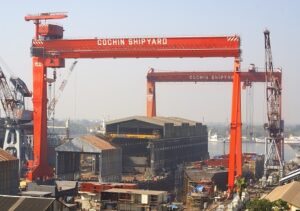
On May 3, 2025, Warren Buffett, the legendary investor known as the “Oracle of Omaha,” announced his decision to step down as CEO of Berkshire Hathaway at the end of the year during the company’s annual shareholder meeting in Omaha, Nebraska. This historic moment, marking the end of Buffett’s 60-year tenure, saw him name Vice Chairman Greg Abel as his successor. The announcement, met with a standing ovation from approximately 40,000 attendees, signals a new chapter for the $1.16 trillion conglomerate. Beyond the leadership transition, Buffett shared insights on critical economic issues, including the US deficit, trade policies, investment strategies, and market volatility, offering valuable lessons for investors and policymakers alike.
The Leadership Transition
Buffett’s Announcement
At the 2025 shareholder meeting, Buffett, aged 94, declared, “I think the time has arrived where Greg should become the chief executive officer of the company at year end” (BBC News). He emphasized that Abel would have the “final word” on all decisions, ensuring a clear transfer of authority. Buffett plans to remain involved as chairman, providing guidance when needed, but his role will be significantly reduced. This decision was known only to his children, Howard and Susie Buffett, and select board members before the public announcement, highlighting its sensitivity (The New York Times).
Greg Abel: The Successor
Greg Abel, 62, has been with Berkshire Hathaway for over 25 years, overseeing its non-insurance operations, including energy and industrial businesses. Designated as Buffett’s successor in 2021, Abel has been gradually taking on more responsibilities, such as capital allocation (CNN Business). During the meeting, Abel noted his leadership style would be “more active, but hopefully in a very positive way” compared to Buffett’s (Reuters). His experience and alignment with Berkshire’s value-driven philosophy make him a strong candidate to lead the company forward.
Impact on Berkshire Hathaway
Buffett’s departure as CEO caps a remarkable 60-year run, during which he transformed Berkshire from a failing textile company into a conglomerate with diverse holdings across insurance, energy, retail, and technology. The company’s stock has risen 19% in 2025, outperforming the S&P 500’s 3% decline (Reuters). Abel’s leadership is expected to maintain Berkshire’s focus on long-term value creation, though his more hands-on approach may introduce new strategies for managing its 189 operating businesses. Buffett’s continued presence as chairman and his commitment to retaining his 14% stake, worth approximately $164 billion, provide stability during this transition (The New York Times).
Buffett’s Economic and Investment Insights
During the 4.5-hour question-and-answer session, Buffett addressed a range of topics, offering insights that reflect his deep understanding of markets and economics (CNBC). Below is a detailed breakdown of his key points.
1. Concerns Over the US Deficit
Buffett expressed significant concern about the US federal deficit, describing it as “unsustainable over a very long period of time” (CNBC). He criticized congressional inaction, stating, “We’ve got a lot of problems always as a country, but this is one we bring on ourselves.” Buffett warned that unchecked deficits could lead to currency devaluation, noting, “If you picked a way to screw it up, it would involve the currency.” His comments underscore the potential economic risks of fiscal mismanagement and the need for responsible policy-making.
2. Trade Should Be Cooperative
Buffett reiterated his support for free trade, cautioning against economic nationalism and aggressive tariff policies. “Trade should not be a weapon,” he said, adding that tariffs “can be an act of war” (CNBC). He emphasized the benefits of a prosperous global economy, stating, “We want a prosperous world… not one where a few countries say, ‘Ha, ha, ha. We won.’” These remarks reflect Buffett’s belief in cooperative trade as a driver of economic stability and growth.
3. Opportunistic Investing
Buffett discussed Berkshire’s investment strategy, noting that the company has considered deals up to $100 billion but that opportunities are unpredictable. “Things don’t come along in an orderly fashion,” he said. “We’re running a business which is very, very, very opportunistic” (CNBC). With a record cash pile of $347 billion, Berkshire is well-positioned to capitalize on market opportunities, though Buffett noted that attractive investments require patience (Yahoo Finance).
4. Preference for Securities Over Real Estate
Buffett highlighted his preference for investing in stocks over real estate, citing the complexity and time-consuming nature of real estate deals. “It’s so much harder than stocks,” he said, noting that real estate often involves “negotiation of deals, time spent, [and] the involvement of multiple parties in the ownership” (Moneycontrol). He added that stocks offer more opportunities in the US and are easier to manage, reinforcing his focus on efficiency in investment decisions.
5. Caution on Currencies and Risk
Buffett expressed caution regarding currency exposure, stating that Berkshire avoids investing in countries with unstable currencies. He warned that fiscal mismanagement could lead to a weaker US dollar, noting, “There could be… Things happen in the United States that… make us want to own a lot of other currencies” (CNBC). In his 2025 annual report, he described the value of currency as a “scary thing” and cautioned that “paper money can evaporate if fiscal folly prevails” (Berkshire Hathaway).
6. Ignoring Market Mood Swings
Addressing recent market volatility, Buffett urged investors to remain unemotional. “If you get frightened by markets that decline and get excited when stock markets go up… People have emotions, but you’ve got to check them at the door when you invest,” he said (CNBC). He downplayed the recent market turbulence, stating, “This is not a very dramatic bear market,” and suggested that investors focus on a company’s intrinsic value rather than short-term price fluctuations (CNBC).
7. Optimism About the US
Despite his concerns, Buffett remained optimistic about the US, calling his birth in the country “the luckiest day in my life.” He expressed confidence in American leadership and economic resilience, stating, “If I were being born today, I would just keep negotiating in the womb until they said, ‘You can be in the United States’” (Reuters). This optimism underscores his belief in the long-term potential of the US economy.
Market and Economic Context
The 2025 shareholder meeting occurred amid economic uncertainty driven by President Donald Trump’s aggressive tariff policies, which have contributed to market volatility. The S&P 500 nearly entered a 20% bear market in April 2025 before rebounding, reflecting investor concerns about trade wars and economic slowdown (CNBC). Buffett’s comments on trade and deficits are particularly relevant in this context, as they address the risks of protectionism and fiscal irresponsibility. His optimism about the US, however, suggests a belief that these challenges can be overcome with sound leadership and policy.
Buffett’s Legacy and Future Outlook
Warren Buffett’s legacy as one of the greatest investors of all time is undeniable. His value investing philosophy, rooted in the teachings of Benjamin Graham, has delivered extraordinary returns for Berkshire shareholders. His ability to ignore market noise and focus on long-term value has set a standard for investors worldwide. As Buffett steps down, his continued role as chairman and his substantial stake in Berkshire ensure that his influence will persist.
Under Greg Abel’s leadership, Berkshire Hathaway is expected to maintain its disciplined approach to capital allocation and investment. Abel’s track record and alignment with Buffett’s principles suggest a seamless transition, though his more active management style may introduce new strategies. Investors will be watching closely to see how Abel navigates the company’s $347 billion cash pile and pursues new opportunities in a volatile market (Yahoo Finance).
Conclusion
Warren Buffett’s announcement to step down as CEO of Berkshire Hathaway marks a pivotal moment in the world of finance. His decision to pass the torch to Greg Abel reflects confidence in the company’s future and a well-planned succession strategy. Throughout the 2025 shareholder meeting, Buffett demonstrated his unparalleled wisdom, offering insights on the US deficit, trade, investing, currencies, and market volatility. His advice to remain unemotional and focus on long-term value remains a guiding principle for investors.
As Berkshire Hathaway enters a new era, its foundation built on value investing, ethical business practices, and long-term thinking remains strong. Buffett’s legacy will continue to inspire, and under Abel’s leadership, Berkshire is poised to navigate the challenges and opportunities of the future with the same discipline and opportunism that have defined its success for six decades.




